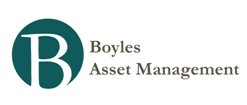Money and Finance
- Statistics And Investing...
From Nassim Taleb in Fooled By Randomness: If the science of statistics can benefit me in anything, I will use it. If it poses a threat, then I will not. I want to take the best of what the past can give me without its dangers. Accordingly, I will...
- Harari On Hindsight...
From Sapiens: A Brief History of Humankind: "...the better you know a particular historical period, the harder it becomes to explain why things happened one way and not another…In fact, the people who knew the period best – those alive at the...
- Charlie Munger On Wisdom Acquisition And Continuous Learning...
Via my typed notes from his 2007 USC Commencement Speech: Wisdom acquisition is a moral duty. It’s not something you do just to advance in life. As a corollary to that proposition which is very important, it means that you are hooked for lifetime...
- Robert Greene Quote On Failure And Trying Out Your Ideas
From the book Mastery: “Think of it this way: There are two kinds of failure. The first comes from never trying out your ideas because you are afraid, or because you are waiting for the perfect time. This kind of failure you can never learn from, and...
- Following The Path To Mastery With Robert Greene
Greene comes on around 13:51. Link ................ Related book: Mastery Related link (6-part article from Robert Greene on Tim Ferriss' site): The Magic of Apprenticeship — A How-To Guide Excerpts from the article: From Part III: What prevents...
Money and Finance
Nassim Taleb on learning from history
These quotes reminded me of the importance of using checklists in certain areas of life, including the investing process:
"As I mentioned above, it is not natural for us to learn from history. We have enough clues to believe that our human endowment does not favor transfers of experience in a cultural way but through selection of those who bear some favorable traits. It is a platitude that children learn only from their own mistakes; they will cease to touch a burning stove only when they are themselves burned; no possible warning by others can lead to developing the smallest form of cautiousness. Adults, too, suffer from such a condition....The scientific name of the distinction between the two memories, the conscious and the nonconscious, is declarative and nondeclarative. Much of the risk avoidance that comes from experiences is part of the second. The only way I developed a respect for history is by making myself aware of the fact that I was not programmed to learn from it in a textbook format. Actually, things can be worse than that: In some respects we do not learn from our own history. Several branches of research have been examining our inability to learn from our own reactions to past events: For example, people fail to learn that their emotional reactions to past experiences (positive or negative) were short-lived—yet they continuously retain the bias of thinking that the purchase of an object will bring long-lasting, possibly permanent, happiness or that a setback will cause severe and prolonged distress (when in the past similar setbacks did not affect them for very long and the joy of the purchase was short-lived). All of my colleagues who I have known to denigrate history blew up spectacularly—and I have yet to encounter some such person who has not blown up." -Nassim Taleb, Fooled by Randomness
- Statistics And Investing...
From Nassim Taleb in Fooled By Randomness: If the science of statistics can benefit me in anything, I will use it. If it poses a threat, then I will not. I want to take the best of what the past can give me without its dangers. Accordingly, I will...
- Harari On Hindsight...
From Sapiens: A Brief History of Humankind: "...the better you know a particular historical period, the harder it becomes to explain why things happened one way and not another…In fact, the people who knew the period best – those alive at the...
- Charlie Munger On Wisdom Acquisition And Continuous Learning...
Via my typed notes from his 2007 USC Commencement Speech: Wisdom acquisition is a moral duty. It’s not something you do just to advance in life. As a corollary to that proposition which is very important, it means that you are hooked for lifetime...
- Robert Greene Quote On Failure And Trying Out Your Ideas
From the book Mastery: “Think of it this way: There are two kinds of failure. The first comes from never trying out your ideas because you are afraid, or because you are waiting for the perfect time. This kind of failure you can never learn from, and...
- Following The Path To Mastery With Robert Greene
Greene comes on around 13:51. Link ................ Related book: Mastery Related link (6-part article from Robert Greene on Tim Ferriss' site): The Magic of Apprenticeship — A How-To Guide Excerpts from the article: From Part III: What prevents...

